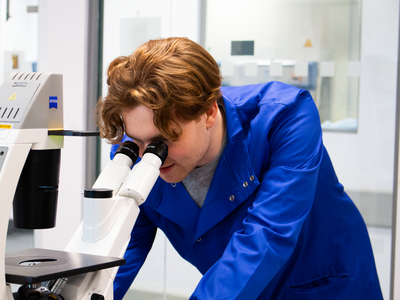PhD project: Tackling childhood cancer
Research description
This research project aims to use an emerging, pioneering treatment method known as oncolytic virotherapy, to treat these tumours. This treatment uses a specific virus to attack and kill the tumour cells. There is great interest in oncolytic virotherapies as a new form of therapy, particularly as a modified herpes virus has recently been approved as a way of treating glioblastoma (a type of fast-growing brain tumour) in Japan. Employing viruses that specifically infect and destroy cancer cells are attractive because they typically have low toxicity and are well tolerated. Additionally, oncolytic virotherapies combine the targeted killing of the cancer cells with the activation of the patient’s immune system against the remaining tumour – a two-pronged approach.
Existing models tell us that Zika virus may offer a new, safe and effective treatment for nervous system tumours in children. This part of the research will focus on an in-depth understanding at the molecular level, which will also tell us more about the safety of Zika in human tumours. Laboratory work will be important, but bioinformatics and data science will enable us to fully understand the biology at play. This will provide the necessary work to move into a human trial phase.
With this research, Zika virus could be in use as a therapy within the next seven-ten years.
Project team
Supervisor: Professor Rob Ewing, Biological Sciences
Secondary supervisors: Professor Juliet Gray, Paediatric Oncology; Professor Ruben Sanchez-Garcia, Mathematics; Dr Yihua Wang, Biological Sciences.

Fund a PhD student for this project
To donate, please email us at supportus@soton.ac.uk, call us on +44(0)23 8059 2747 or make an online donation now.
